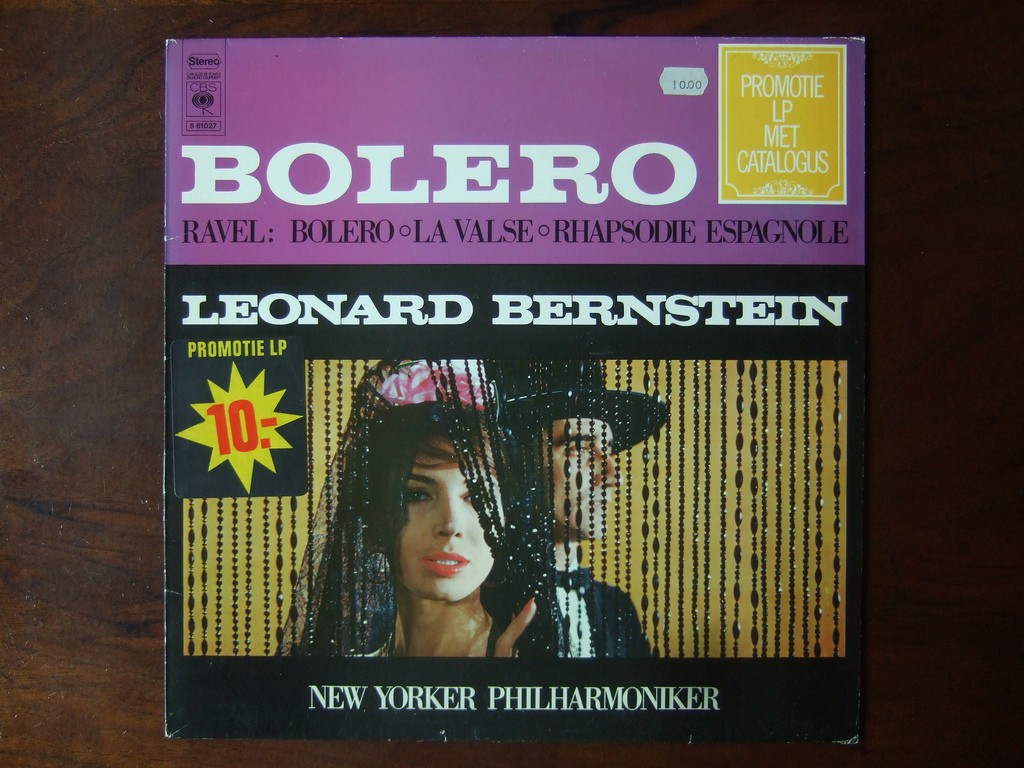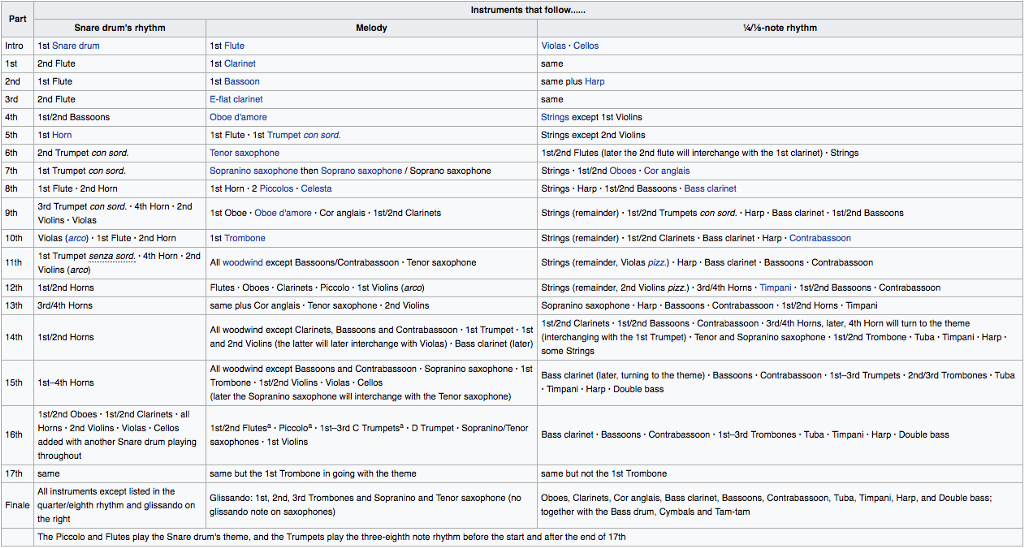Will Someone Please Tell Me If Ravel's 'Boléro' Is About Sex Or Not?
Classical Music Hour with Fran

Happy new year? Does anyone know if Maurice Ravel’s Boléro is actually about sex? Please let me know. I started this column by going to the Wikipedia page for the Boléro and control+F-ing “sex” and it came up fewer times than I expected it to, so now we have a mystery on our hands.
The Boléro is a piece you’ve almost definitely heard. Premiering in 1928, Ravel’s Boléro is literally just a crescendo of a melody. That’s the whole thing for fifteen minutes. It for sure should not work. On paper, “the same thing over and over again, but louder each time” sounds like a goddamn nightmare. But it’s not! It’s amazing, somehow, and it cemented Ravel’s place in both French and general classical music history.
Ravel lived from 1875–1937, which puts him on the later side of some of the Romantic composers I’ve previously written about, and he’s namely remembered as an Impressionist, not unlike our pal Debussy. Ravel was a fairly gifted pianist — his compositions were often first written for piano, then re-arranged for a full orchestra. But he plateaued at a young age, and then turned to composing. He was also, as it seems from some general research, was kind of a bad boy? Like, at least he wanted to be a bad boy. Around the turn of the century, he started hanging out with a group of other musicians and composers and artists known as Les Apaches which translates, broadly, to The Hooligans. Which, like, calm down. Beyond that, a lot of details about Ravel’s personal life remain a mystery, which, okay, maybe he’s a little bit of a bad boy then.
What’s generally cool about Ravel being situated a little later in time than many composers I’ve previously written about is that Ravel lived long enough to see jazz. Remember jazz, from La La Land? I would never say Boléro itself is jazz, but it is jazzier, no doubt, than other pieces I’ve written about before. Initially commissioned as a ballet, Boléro is often just performed on its own, as a standalone piece of music. I prefer this recording of Leonard Bernstein conducting the New York Philharmonic (because I try to link to Bernstein whenever I can; he’s the best).
So you’ll listen to the Boléro and you’ll agree: damn, this is really just the same… thing… over and over again… but it also works? I mean, this is Ravel’s most famous piece! This!!! You really can listen to it all the time for a long time, the way I do with other songs that sound the same over and over again (see: my top three Spotify plays from 2016). Some maniacal Wikipedia editor actually assembled this fascinating chart of the order each instrument comes in playing the melody.

Boléro starts with a quiet snare drum playing the essential rhythm of the piece. This continues throughout. The snare is forever. It’s endless. It’s both a dream and a nightmare of a part. I will say I’ve both longed to and never ever wanted to play Boléro as a percussionist. It’s both iconic and torturous (isn’t most good art? Idk). The woodwinds layer themselves in, and as the piece continues, the early instrumental additions wind up playing the same rhythm as the snare.
It’s insane that this is music? But it is! It goes on for a full 15 minutes, so much so that by about the 12-minute mark, as it’s really revving up, as literally every single instrument in the orchestra is all playing the same thing, at least one little part of you is asking how it’s still going. But it’s a perfect crescendo. It’s elegant and mathematical. And it’s catchy. I have to give credit where it’s due: this is a catchy melody you can listen to on repeat, because it’s meant to be listened to that way, because it’s played that way. That’s not to say that Boléro hasn’t pissed some people off. There’s an anecdote from its premiere in which an old woman shouted “Rubbish!” at the end (old women rule), and Ravel responded with some variation of, “this lady gets it.” So he knew he was trolling, more or less, and even he was surprised by the general accolades given to Boléro.
But still: why do I think Boléro is about sex? This can’t just be a made-up thing, and I’m not a pervert either, I promise, truly. Ravel did not set out to write it about sex; it’s really just based on a bolero, a type of Spanish dance that isn’t more or less sexual than most types of dancing. Wikipedia cites some references to it being used in the film 10, which I’ve never seen but uses the word ‘sexy’ in its IMDB description.
So, like:
Did someone come up to me when I was impressionably young and say, “Ravel’s Boléro is directly about sex and this is both historic and true,” to me even though none of this is true?
Is most music actually very sexual? (Do not make me link to the Seeb remix of “I Took A Pill In Ibiza” again.)
Or is anything that kind of repeats itself over and over again basically taking on the form of, well, sex?
This is the kind of thing where, if considered over and over again, will drive you insane, no doubt, so I’ll let it rest for now. It’s not about sex. Although maybe it is, but maybe it isn’t. It’s weird if all of this was just, I don’t know, self-generated, but I can’t ever listen to Boléro without thinking it’s sexy. There’s a coyness to it. It’s playful in this borderline irritating way — maybe because Ravel knew he was just getting away with something when he wrote a piece that was the same thing over and over again. I love that it never really speeds up; it just becomes more. It lilts and bounces, tumbling over and onto itself. It’s gotta be about sex, right????????? Anyway, consider the fact that I’ve possibly cursed you with the same assumption about Boléro, leaving you to wonder as the melody starts over again.
Fran Hoepfner is a writer from Chicago. You can find a corresponding playlist for all of the pieces discussed in this column here.
